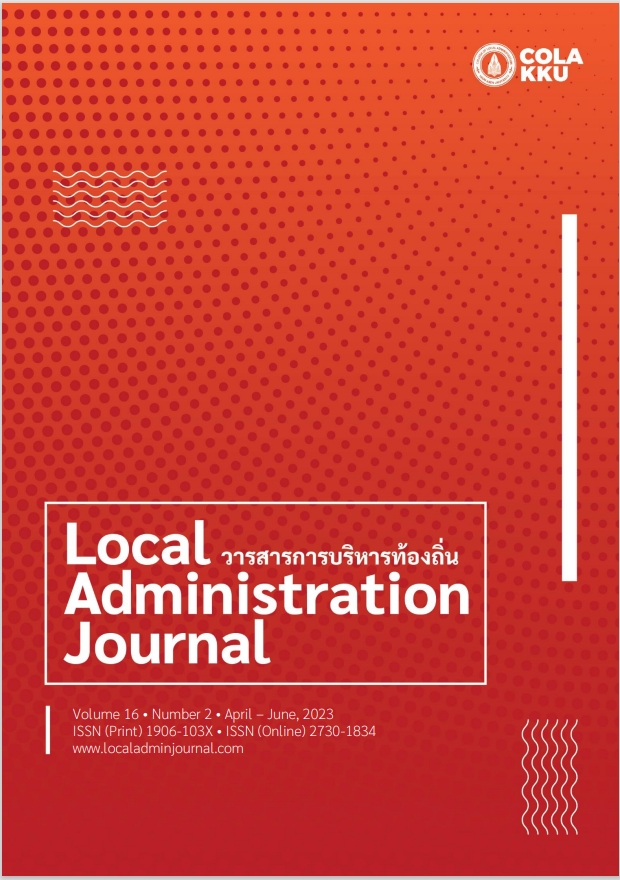Factors Influencing Sustainable Economic Empowerment of Small-Scale Women Entrepreneurs Using a Local Government Women’s Development Fund in Tanzania
Keywords:
Empowerment, Entrepreneurship, Women Development FundAbstract
The study assessed factors influencing sustainable empowerment of women small-scale entrepreneurs using the Women’s Development Fund (WDF). It adopted the elements and factors for a sustainability framework to examine the contribution of WDF to women small-scale entrepreneurs’ beneficiary groups. Qualitative and quantitative methods were used in a cross-sectional design to collect data meriting a complementary understanding of the study problem. Findings revealed low business performance among beneficiary groups due to gaps in the 4% allocation from Local Government Authorities (LGAs) for loans, delay of loan disbursement, inadequate entrepreneurship training to beneficiary groups, and limited supportive supervision to credit beneficiaries. Moreover, their business performance has also been affected by limited entrepreneurship capability and non-compliance with WDF guidelines, which increased loan defaults. This paper recommends a study to compare business performance between WDF groups with loans from other Microfinance Institutions (MFIs) for enhancing LGAs’ management of empowerment programs.
References
Adhiambo, P.A. (2014). Women Enterprise Fund in Kenya: Its Influence on Livelihoods of Women Entrepreneurs. Dissertation for award of Master degree in Community Development at University of Nairobi: Kenya
Amos, D. M. & Lutego, D. (2022). Role of Women Development Fund on Growth of Women Owned Businesses. International Journal of Engineering, Business and Management, 6(2), 105–115.
Australia, C.L., Kuratko, D., & O’Connor, A., (2015). Entrepreneurship Cengage Learning. Australia, Melbourne.
Bill & Melinda Gates Foundation. (2019). Women's Economic Empowerment. Retrieved from https://www.gatesfoundation.org/equal-is-greater/
Bujune, L. (2020). Women Development Fund and Livelihood Improvement in Tanzania. Dissertation for award of Msc.DP at Mzumbe University: Tanzania
Buvinic, M. & Furst-Nichols, R. (2014). Measuring women's economic empowerment. Irving, TX: ExxonMobil Foundation.
Buvinic, M. & O’Donnell, M. (2016). Revisiting what works: Women, economic empowerment and smart design. Washington DC 20036; Centre for Global Development. Retrieved from http://womeneconroadmap.org/sites/default/files/CGD-Roadmap-Update_v4.pdf
Cohen, L., Manion, L. & Morrison, K., (2018). Research methods in education, (8th ed.) Routledge, London; New York.
Creswell, J. W. (2012). Educational research: Planning, conducting, and evaluating quantitative and qualitative research (4th ed.). Boston, MA: Pearson
Creswell, J.W. & Plano Clark, V.L., (2018). Designing and conducting mixed methods research (3rd ed). SAGE, Los Angeles.
de Mel, S., D. McKenzie, & C. Woodruff. (2008). “Returns to Capital in Microenterprises: Evidence from a Field Experiment.” Quarterly Journal of Economics, 123(4), 1,329–1,372.
Entwistle, R. (2008). Entrepreneurship and Youth: The Critical Role of the Christian Community in Development. Retrieved from http://citeseerx.ist.psu.edu/viewdoc/download? =10.1.1.586.1273&rep=rep1&type=pdf. [17/12/2017]
Ikasu, E. & Matimbwa, H., (2019). Impact of Women Development Fund in Generating Women Entrepreneurs: Evidence from Mbulu District Council. Journal of Business School, 2(6), 31-39.
Machimu, G.M. & Kayunze,K.A .(2019).Impact of Sugarcane Contract Farming Arrangements on small scale holder farmers’ livelihood Outcomes in Kilombero Valley. East African Journal of Social and Applied Sciences, 1(2), 1-12
Majenga, A. & Mashenene, R. (2014). Socio-Cultural Factors and Financial Performance among Women Small and Medium Enterprises in Tanzania. European Journal of Business and Management, 6 (32), 153-163.
Mori, N. (2014). Women’s entrepreneurship development in Tanzania: Insights and Recommendations. Geneva: International Labour Office.
Mtega, D.V. (2018). Performance of Women Development Fund Toward Economic Empowerment in Tanzania. Global Scientific Journal, 6(11), 314-328.
Mwakisisya, H. (2020). The Interface between Participatory Local Social Development (PLSD) and Andragogy in Improved Opportunities and Obstacles to Development (O&OD) System in Tanzania. Journal of Education and Practice, 11(14), 87 – 96.
Ngoyo, L., Lubuva, E. & Alexander, E. (2015). Factors affecting internal revenue mobilization in Local Government Authorities in Tanzania. Local Government Development Journal, 3(1), 1 – 15.
Phillipo, F. (2022). Business Practices of Beneficiaries of Women Development Fund in Iringa Municipal Council, Iringa Region Tanzania, 16(3), 1–9.
Rwegoshora, H.M.M. (2006). A guide to social science research. Mkuki na Nyota Publishers Ltd. Dar es Salaam
Sharma. J. & Yutaka Ohama (2007). Participatory Local Social Development- An Emerging Discipline. Bharat Book Centre. Lucknow. India
Tendai, C. (2012). Impediments to youth entrepreneurship in rural areas of Zimbabwe. African Journal of Business Management, 6(38), 10,389-10,395.
Tshuma, N. & Selome, J. (2014). Microfinance and women empowerment in Zimbabwe: International Letters of Social and Humanistic Sciences, 35, 74-85.
United Nations. (2016). Leave no one behind a call to action for gender equality and women’s economic empowerment. Women's Economic Empowerment, 16(1), 1-14.
United Republic of Tanzania. (2003). Small and Medium Enterprise Development Policy. Retrieved from www.mit.go.tz/uploads/documents/sw/1455890063-SME-Development-Policy.pdf
United Republic of Tanzania. (2018). Guidelines for facilitating and managing Women Development Fund. Dodoma: Ministry of Health Community Development, Gender, Elderly and Children.
United Republic of Tanzania. (2019). Regulations for facilitating and managing Women. Dodoma-Tanzania: Youth and People with Disabilities Development Fund.
United Republic of Tanzania. (2020). Control and Auditor General (CAG) report 2018/2019. Dodoma Tanzania: Chamwino.
Downloads
Published
How to Cite
Issue
Section
License
Copyright (c) 2023 Local Administration Journal

This work is licensed under a Creative Commons Attribution-NonCommercial-NoDerivatives 4.0 International License.
The copyright of all articles published in the Local Administration Journalis owned by the College of Local Administration, Khon Kaen University.



